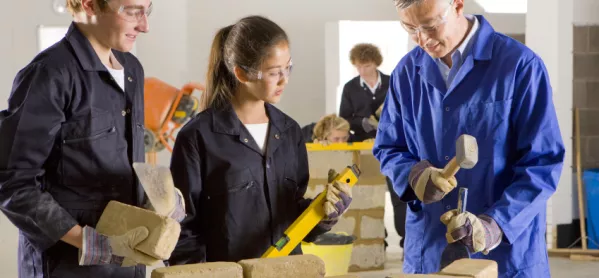Men are more likely to earn more after starting an apprenticeship than women, new research by the Centre for Vocational Education Research (CVER) shows.
The research, published by academics at the London School of Economics’ CVER, considered earnings data for around 565,000 students who left compulsory education in 2002-03, as well as the Labour Force Survey.
Authors Chiara Cavaglia, Guglielmo Ventura and Sandra McNally concluded that while most people do indeed gain from doing an apprenticeship, the extent of this gain varies significantly and depends very much on age and gender. Those with most to gain tend to be male, as well as those who start their apprenticeship at a younger age.
Pay differences between sectors
The report says: “For men, the [pay] differential is very high on average, especially for advanced apprenticeships. For women, the differential is roughly half the size and is especially modest for advanced apprenticeships by the age of 28.”
Much of the gender difference in earnings, they explained, was attributable to the sector in which an apprentice works. There is a higher concentration of men in sectors, such as engineering, where the financial return on an apprenticeship is high, while women are specialised in areas where the returns are much lower, such as child development.
While the gross annual earnings payoff at age 23 for men who undertook a level 3 apprenticeship in engineering was 37.8 per cent (meaning they can earn 37.8 per cent more than those who did not do an apprenticeship), it was only 4.5 per cent for women who did an apprenticeship at level 3 in child development.
Overall, the earnings differential at the age of 23 for men starting a level 3 apprenticeship was 30.3 per cent – more than double the 14.3 per cent reported for women.
'Lack of women' in apprenticeships
The report continues: “A practical implication is that careers information for students should pay careful attention to the type of apprenticeships available rather than to encourage students to take any type of apprenticeship at all.”
Careers advice is key to tackling the gender gap in apprenticeships, according to Women’s Engineering Society chief executive Kirsten Bodley. “It is a real shame that so little has been done to address the lack of girls and women in certain apprenticeships," she said.
Emily Chapman, vice-president for FE at the NUS students’ union, said careers advice played “a huge role in supporting prospective apprentices and getting people on to courses that are the best fit for skills and preparing them for the future”.
Euan Blair, the co-founder of apprenticeship organisation WhiteHat, said: “We should be doing much more in terms of how we write a job description, to how we describe roles and where we advertise them. Those are really good ways to help.”




